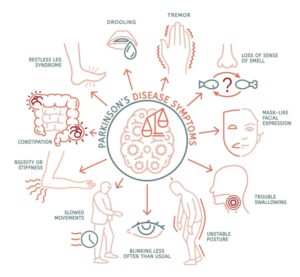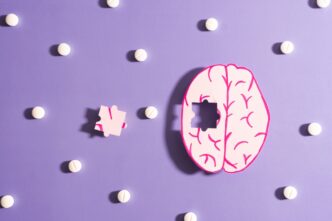When people think of Parkinson’s, trembling hands come to mind — but did you know symptoms like constipation, anxiety, and a fading sense of smell can appear years earlier? Neurologist Dr Hasnur Zaman Hashim explains how to spot the early signs and why quick action makes all the difference.
WORDS DR HASNUR ZAMAN HASHIM
 FEATURED EXPERT FEATURED EXPERTDR HASNUR ZAMAN HASHIM Consultant Internal Medicine Physician and Neurologist Columbia Asia Hospital – Klang |
When people think of Parkinson’s disease, they often imagine trembling hands.
But for many, the early signs go beyond movement problems.
Subtle symptoms like constipation, difficulty sleeping, or even a fading sense of smell can appear years before the first noticeable shake.
Unfortunately, these signs are often dismissed or overlooked, thus delaying diagnosis and treatment.
As a neurologist, I frequently encounter cases where Parkinson’s disease is only recognized after significant progression. Here’s what you need to know about this complex condition, its early warning signs, and why timely treatment matters.
UNDERSTANDING PARKINSON’S DISEASE
- Parkinson’s disease is a progressive neurological disorder caused by a drop in dopamine levels in the brain.
- Dopamine is a chemical messenger responsible for transmitting signals between nerve cells.
- It therefore plays a critical role in regulating movement and affects emotions and how the body interprets its surroundings.
- When dopamine levels fall, both motor symptoms (movement-related) and non-motor symptoms such as mood changes and digestive issues can occur.
What Causes It?
- Despite decades of research, the exact cause of Parkinson’s disease remains unknown.
- However, we do know that genetics can play a role, particularly in cases where the disease develops at a younger age or runs in families.
- Unfortunately, there’s currently no proven way to prevent Parkinson’s disease, even if someone carries risk factors.
EARLY SIGNS AND SYMPTOMS
The motor symptoms of Parkinson’s — such as tremors, body stiffness, slowed movements, and unsteadiness — are typically what bring patients to a doctor’s attention.
However, what many don’t realise is that non-motor symptoms often appear earlier and can remain unnoticed for years.
Some of these early warning signs include:
- Constipation
- Anxiety or depression
- A reduced sense of smell
- Disturbed sleep patterns
At this stage, Parkinson’s disease is frequently mistaken for unrelated health issues, which delays proper treatment.

DIAGNOSING PARKINSON’S DISEASE
Diagnosis is based on a patient’s medical history and a clinical examination to identify characteristic features of the disease.
Tests are often conducted to rule out other conditions that mimic Parkinson’s disease, such as stroke, thyroid disorders, or Wilson’s disease.
Early Diagnosis Is Crucial
Patients who start treatment promptly can maintain a good quality of life for many years.
I’ve personally seen patients who were misdiagnosed for years — one endured endless procedures for constipation, only to later discover Parkinson’s disease was the underlying cause!
TREATMENT OPTIONS FOR PARKINSON’S DISEASE
While Parkinson’s remains incurable, we have an expanding range of medications that help manage its symptoms. These include:
- L-dopamine and dopamine agonists to supplement dopamine levels.
- Medications to ease specific symptoms like tremors and rigidity.
Even for patients in the later stages of the disease, treatment options — including surgical interventions — can provide meaningful improvement.
STAYING ACTIVE AND MANAGING DAILY LIFE
- With the right combination of medication and lifestyle adjustments, many people with Parkinson’s remain active and independent.
- Exercise, dance, and yoga have shown promise in helping to slow disease progression and improve mobility.
- Supportive tools such as walking aids and medication reminder devices can also help patients maintain their routines as the disease advances.
THE ROLE OF CAREGIVERS
- Caregivers are vital in the lives of Parkinson’s patients, especially as the disease affects both movement and mental health.
- Depression, anxiety, and cognitive changes are common, requiring both physical assistance and emotional support.
I always advise caregivers to educate themselves about the disease and stay informed.
Understanding Parkinson’s improves not just the patient’s quality of life, but the caregiver’s too.
| This article is part of our series on diseases that affect the brain, such as Parkinson’s disease. |














